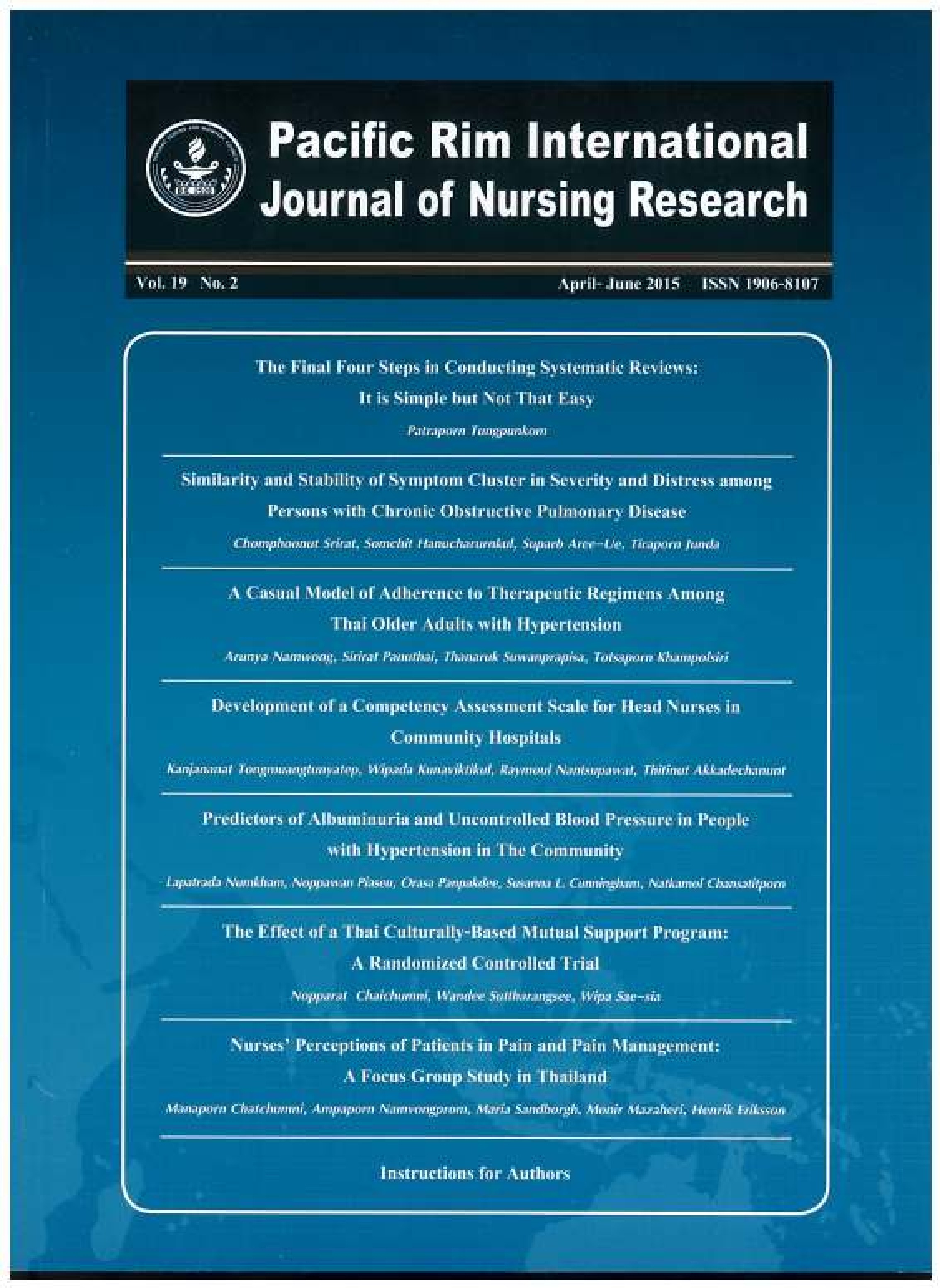Predictors of Albuminuria and Uncontrolled Blood Pressure in People with Hypertension in The Community
Keywords:
Albuminuria, Hypertension, Socio-Ecological Model, Uncontrolled hypertensionAbstract
The aims of this descriptive predictive study of people with hypertension in the community were to 1) describe the prevalence of albuminuria and uncontrolled blood pressure, and 2) examine the factors predicting of albuminuria and uncontrolled blood pressure. A socio-ecological model was used to guide the conceptual framework. The sample was 360 community-dwelling people with hypertension in a province in central Thailand. Data were collected using questionnaire-based, structured interviews about health information, health behaviors, knowledge and attitude toward hypertension, family support, and community participation. A three-day food record was completed. Body mass index, waist circumference, blood pressure, and albuminuria were measured. Data were analyzed using descriptive statistics and multiple logistic regression.The prevalences of microalbuminuria, macroalbuminuria and uncontrolled blood pressure were 23.6%, 3.9%, and 52.2% respectively. Multiple logistic regression analysis revealed that sodium intake and stress together predicted 72.5% of albuminuria. Sodium intake, medication adherence, knowledge of hypertension, and stress together predicted 65.3% of uncontrolled blood pressure. These results suggest that community health nurses should 1) monitor people with uncontrolled hypertension who exhibit high sodium intake and implement interventions to increase health awareness and promote low sodium consumption; 2) coordinate with the physicians to monitor albuminuria, particularly in persons with high sodium intake and high stress; and 3) collaborate with the community to initiate a campaign to raise awareness of the risks of high blood pressure.
Downloads
Published
2015-05-20
How to Cite
1.
Numkham L, Piaseu N, Panpakdee O, Cunningham SL, Chansatitporn N. Predictors of Albuminuria and Uncontrolled Blood Pressure in People with Hypertension in The Community. PRIJNR [internet]. 2015 May 20 [cited 2026 Feb. 27];19(2):135-49. available from: https://he02.tci-thaijo.org/index.php/PRIJNR/article/view/18226
Issue
Section
Original paper
License
Copyright: The Pacific Rim International Journal of Nursing Research, Thailand Nursing & Midwifery Council has exclusive rights to publish, reproduce and distribute the manuscript and all contents therein.








.png)



